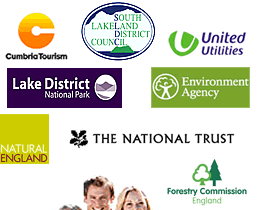|
Effective Strategies to Mitigate Water Pollution from Agriculture
Introduction:
Water pollution from agriculture has emerged as a pressing global concern, impacting ecosystems, human health, and the environment. Environmentalists, farmers, conservationists, environmental scientists, and students play pivotal roles in finding solutions to this critical issue. In this article, we delve into the various facets of agricultural water pollution, explore its consequences, and present effective strategies to promote sustainable farming practices that mitigate pollution and safeguard water resources. If you plan to investigate the economic consequences of the polluting activities of agriculture on other industries, we recommend that you contact the economic essay writing service https://essays-panda.com/economics-essay for help.
Understanding Water Pollution from Agriculture:
Agricultural water pollution encompasses the discharge of pollutants, such as pesticides, fertilizers, and sediment, into water bodies through runoff and leaching. These contaminants degrade water quality, leading to eutrophication, habitat destruction, and biodiversity loss. The urgency to address this issue lies in protecting aquatic life, securing safe drinking water, and preserving fragile ecosystems.
Agriculture contributes significantly to water pollution, with fertilizers and pesticides being major culprits. Excessive nutrient runoff, primarily from nitrogen and phosphorus, leads to algal blooms and dead zones in water bodies. Sediments from erosion degrade water quality, suffocating aquatic habitats and affecting aquatic species.
The Role of Environmentalists in Advocating Change:
Environmentalists play a crucial role in raising awareness about the adverse effects of agricultural water pollution. By advocating for policy changes, sustainable practices, and collaborative efforts, they contribute to a greener and cleaner future. Successful environmental advocacy initiatives have already influenced policies that promote eco-friendly agricultural practices.
Environmentalists actively engage in community outreach, educational programs, and public demonstrations to inform stakeholders about the impacts of water pollution from agriculture. They collaborate with farmers and policymakers to design environmentally friendly practices that strike a balance between agricultural productivity and water conservation.
Sustainable Farming Practices to Reduce Pollution:
The adoption of sustainable farming practices is pivotal in reducing water pollution. Techniques like cover cropping, crop rotation, and reduced fertilizer use minimize runoff and nutrient leaching. We showcase inspiring case studies of farmers who have embraced sustainable practices, observing improvements in water quality and increased crop yields.
Cover cropping involves planting specific crops during fallow periods to prevent soil erosion and reduce nutrient runoff. Crop rotation breaks the cycle of pests and diseases, reducing the need for chemical pesticides. Furthermore, farmers implementing reduced fertilizer use adjust their application rates based on soil nutrient levels, preventing excess runoff into water bodies.
Precision Agriculture and Technology Solutions:
Modern technology opens new avenues for optimizing water usage in agriculture. Precision agriculture employs data-driven approaches, IoT devices, and remote sensing to precisely manage irrigation and nutrient application. We delve into the potential of AI and machine learning to revolutionize water management practices.
Precision agriculture allows farmers to analyze real-time data on soil moisture, weather conditions, and crop health. This data-driven approach enables precise irrigation, minimizing water wastage and nutrient leaching. Moreover, smart irrigation systems utilizing IoT devices ensure optimal water distribution across fields.
AI and machine learning algorithms analyze vast amounts of agricultural data to optimize irrigation schedules and nutrient application. These technologies provide farmers with data-backed recommendations, leading to efficient water usage and reduced environmental impact.
Conservation and Riparian Buffers:
Conserving natural habitats and riparian zones plays a significant role in protecting water bodies from agricultural pollutants. Riparian buffers act as vital filters, reducing sediment and nutrient loading. We highlight successful implementation and the positive impact of riparian buffers on water quality improvement.
Conserving natural habitats, such as wetlands and forests, helps regulate water flow and filter pollutants before they reach water bodies. Riparian buffers, vegetated strips along rivers and streams, trap sediment, excess nutrients, and chemicals, preventing their entry into waterways.
Studies have shown that riparian buffers significantly reduce sediment and nutrient loads in nearby water bodies. They provide essential habitat for wildlife, improve water quality, and contribute to flood control. Collaboration between conservationists, farmers, and landowners is essential to implement and maintain effective riparian buffer zones.
Nutrient Management and Best Management Practices (BMPs):
Effective nutrient management is essential to minimize nutrient runoff and eutrophication. Tailored Best Management Practices (BMPs) based on crop and regional conditions are crucial in curbing pollution. Collaborative efforts between farmers, conservationists, and scientists ensure the successful implementation of BMPs.
Nutrient management plans help farmers optimize fertilizer application, reducing excess nutrient runoff. Utilizing soil testing and crop-specific nutrient requirements, farmers can apply fertilizers in a targeted and sustainable manner.
Best Management Practices (BMPs) encompass a range of strategies, including conservation tillage, cover cropping, and buffer strips. These practices promote soil health, reduce erosion, and minimize nutrient runoff. Collaborative efforts between farmers and conservationists enable the successful implementation of BMPs, fostering a unified approach to water conservation.
Education and Training for Sustainable Agriculture:
Education and training programs are paramount in promoting sustainable agricultural practices. Institutions offering agricultural education focused on environmental stewardship empower farmers to make informed choices. Students play an instrumental role in advancing sustainable agriculture through research and community engagement.
Agricultural education programs equip farmers with the knowledge and skills needed to adopt sustainable practices. Workshops, seminars, and demonstrations enable farmers to learn about innovative technologies and best practices for water conservation.
Students pursuing degrees in environmental sciences, agriculture, or related fields play an essential role in research and advocacy for sustainable agriculture. They contribute fresh perspectives, innovative solutions, and community engagement, fostering a culture of sustainability in agriculture.
Collaborative Efforts for Water Conservation:
Collaboration between stakeholders is essential in achieving successful water conservation efforts. Farmers, conservationists, scientists, and policymakers working together create impactful solutions. Public-private partnerships and community involvement are instrumental in reducing water pollution and safeguarding water resources.
Collaboration between farmers, conservation organizations, and scientific institutions fosters a holistic approach to water conservation. Public-private partnerships enable the implementation of sustainable practices on a larger scale, encouraging more farmers to adopt eco-friendly methods.
Community involvement, through volunteer programs and local initiatives, reinforces the importance of water conservation. Engaging with stakeholders from various backgrounds facilitates knowledge exchange and the creation of practical solutions tailored to specific regions.
Conclusion:
Mitigating water pollution from agriculture requires collective action and dedication from environmentalists, farmers, conservationists, environmental scientists, and students. By implementing effective strategies and embracing sustainable practices, we can protect our precious water resources, preserve biodiversity, and secure a healthier future for all. Let us unite in the pursuit of sustainable agriculture, ensuring a harmonious coexistence between human activities and the environment.
Additional Resources and Tools:
Environmental Protection Agency (EPA) - Agriculture and Water Quality:
The EPA provides comprehensive information on the impact of agriculture on water quality and guidelines for sustainable practices.
Food and Agriculture Organization (FAO) - Sustainable Farming Practices:
FAO offers valuable insights into sustainable farming techniques, promoting eco-friendly agricultural practices worldwide.
World Wildlife Fund (WWF) - Water Conservation Initiatives:
WWF's water conservation initiatives focus on protecting water bodies from pollution and safeguarding aquatic habitats.
United Nations Sustainable Development Goals (SDGs) - Goal 6: Clean Water and Sanitation:
Goal 6 of the SDGs emphasizes the importance of clean water and sanitation, highlighting the significance of addressing water pollution.
Greenpeace - Advocacy for Sustainable Agriculture:
Greenpeace advocates for sustainable agriculture and supports policies that promote eco-friendly farming practices.
|

